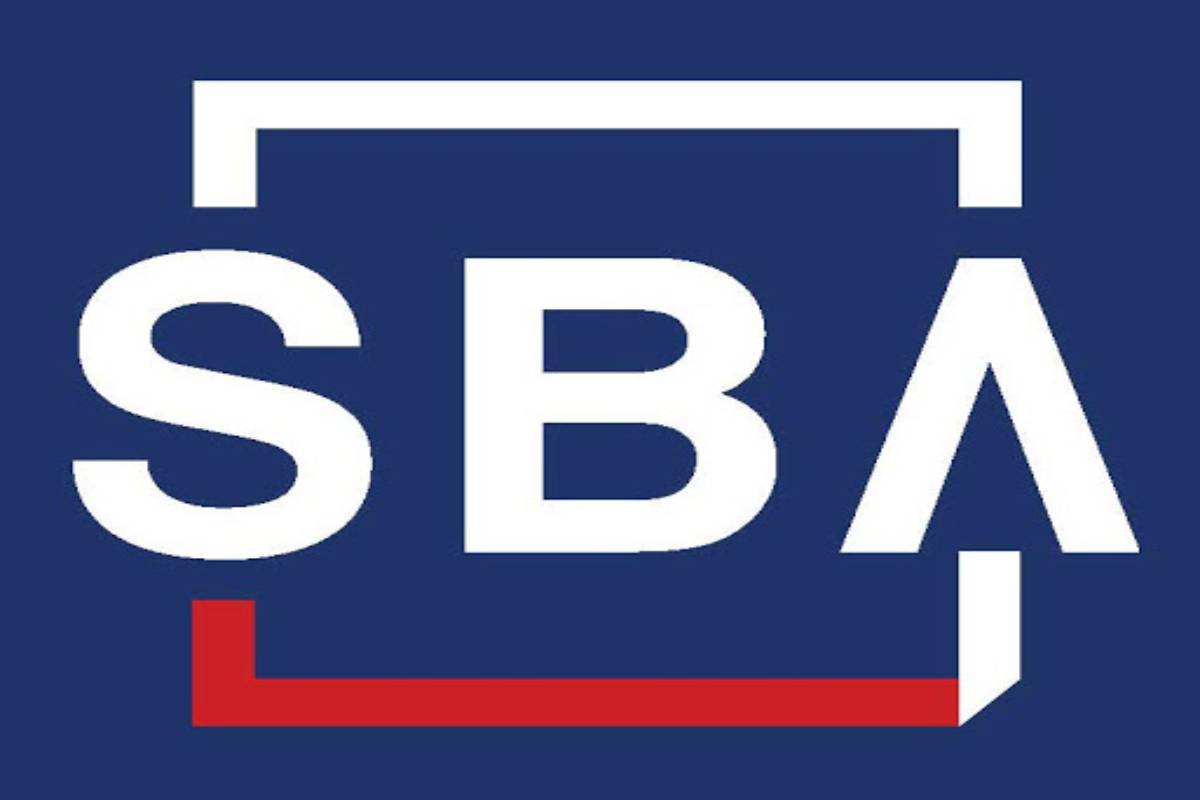Starting a small business isn't just about having a great idea; it's about knowing how to navigate the challenges that come your way. That's where the Small Business Administration (SBA) comes into play. Think of it as your personal cheerleader, but with loans, resources, and expertise that can actually help you grow. Whether you're a newbie entrepreneur or someone looking to expand, the SBA is here to make sure you're set up for success. So, buckle up because we’re diving deep into what the SBA offers and why it matters.
Let’s face it—starting a business is tough. You’ve got a million things to think about: finances, marketing, legal stuff, and the list goes on. But don’t sweat it too much because the Small Business Administration is here to help. It’s like having a Swiss Army knife for entrepreneurs, full of tools and resources to keep your business running smoothly.
Now, if you're wondering why we’re talking about the SBA, it’s simple. This organization has been around since 1953, and its mission is to empower small businesses to thrive. From offering loans to providing mentorship programs, the SBA is a game-changer for anyone looking to build their dream business. So, let’s break it down and explore how the SBA can be your secret weapon.
Read also:Decadesold Murder Relatives Arrested Ndash The Untold Story Behind Shocking Revelations
What Exactly is the Small Business Administration?
The Small Business Administration, or SBA, is a government agency that exists to support and champion small businesses across the United States. Think of it as the ultimate sidekick for entrepreneurs, helping them tackle everything from funding to legal hurdles. The SBA was created in 1953 by President Dwight D. Eisenhower to address the unique challenges faced by small businesses. And trust me, it’s been doing its job ever since.
The SBA’s main goal is to level the playing field for small businesses. It does this by offering a variety of services, including loans, grants, training programs, and advocacy. For example, if you’re struggling to secure financing from traditional banks, the SBA can step in and provide loans with more favorable terms. It’s like having a financial safety net specifically designed for small business owners.
But it’s not just about money. The SBA also provides educational resources, networking opportunities, and counseling services to help entrepreneurs grow their businesses. Whether you’re a first-time founder or a seasoned pro, the SBA has something for everyone.
Key Benefits of the Small Business Administration
Now that we’ve covered what the SBA is, let’s talk about why it’s such a big deal. There are tons of benefits that come with utilizing the SBA’s resources, and here are some of the biggest ones:
- Access to Funding: The SBA offers a variety of loan programs, including the popular 7(a) loan, which can be used for working capital, equipment, and even real estate purchases.
- Business Counseling: Need advice? The SBA partners with organizations like SCORE and Small Business Development Centers (SBDCs) to provide free or low-cost mentoring.
- Training Programs: From webinars to workshops, the SBA offers a wealth of educational resources to help you sharpen your skills.
- Advocacy Support: The SBA acts as a voice for small businesses in government, ensuring that your needs are heard and addressed.
These benefits aren’t just buzzwords—they’re real tools that can make a huge difference in your business journey. Whether you’re just starting out or looking to scale, the SBA has your back.
How Does the SBA Loan Process Work?
One of the most popular services offered by the SBA is its loan program. But how exactly does it work? Let’s break it down step by step:
Read also:Hindi Link 4u Your Ultimate Guide To Hindi Resources
First, you’ll need to find an SBA-approved lender. This could be a bank, credit union, or other financial institution. Once you’ve found a lender, you’ll need to complete an application and provide necessary documentation, such as financial statements and a business plan.
After your application is reviewed, the lender will submit it to the SBA for approval. If approved, the SBA guarantees a portion of the loan, which reduces the risk for the lender. This, in turn, makes it easier for small businesses to secure funding.
It’s important to note that the SBA doesn’t actually lend money directly. Instead, it partners with lenders to offer loans with more favorable terms. For example, SBA loans typically have lower interest rates and longer repayment periods than traditional loans.
Types of SBA Loans
Not all SBA loans are created equal. Here’s a quick rundown of the most common types:
- 7(a) Loan: The most popular SBA loan, used for general business purposes.
- 504 Loan: Designed for purchasing long-term assets, like real estate or equipment.
- Microloan Program: Offers smaller loans (up to $50,000) to help with startup costs or working capital.
- Disaster Loans: Provides funding to businesses affected by natural disasters.
Each type of loan has its own requirements and benefits, so it’s important to choose the one that best fits your needs.
Who Can Qualify for SBA Assistance?
Not everyone is eligible for SBA assistance, but the good news is that the requirements are pretty reasonable. To qualify, your business must meet the SBA’s definition of a “small business,” which varies by industry. Generally, this means having fewer than 500 employees or generating less than a certain amount of revenue annually.
In addition to size requirements, you’ll also need to demonstrate that your business is viable and has a solid plan for repayment. This usually involves submitting a detailed business plan and financial statements. If you can show that your business has potential for growth and profitability, your chances of approval are much higher.
It’s worth noting that the SBA prioritizes certain groups, such as women, minorities, and veterans. If you fall into one of these categories, you may have access to additional resources and support.
Top Resources Offered by the SBA
Beyond loans, the SBA offers a wide range of resources to help small businesses succeed. Here are some of the best ones:
SCORE Mentoring
SCORE is a nonprofit organization that partners with the SBA to provide free mentoring services to small business owners. Their network of experienced mentors can help you with everything from writing a business plan to developing marketing strategies.
Small Business Development Centers (SBDCs)
SBDCs are another great resource offered by the SBA. These centers provide free or low-cost consulting services to help small businesses grow and succeed. They also offer workshops and training programs on a variety of topics.
Women’s Business Centers (WBCs)
WBCs are specifically designed to support women entrepreneurs. They offer training, counseling, and networking opportunities to help women start and grow their businesses.
Common Misconceptions About the SBA
There are a lot of myths floating around about the Small Business Administration, so let’s clear a few of them up:
- Misconception #1: The SBA only helps startups. Reality: The SBA offers resources for businesses at all stages of growth.
- Misconception #2: SBA loans are hard to get. Reality: While there are requirements, the SBA works to make the process as accessible as possible.
- Misconception #3: The SBA only helps small businesses in certain industries. Reality: The SBA supports businesses across a wide range of industries.
By understanding these misconceptions, you can better appreciate the value that the SBA brings to the table.
Success Stories: Real Businesses Thriving with SBA Help
Let’s talk about some real-life examples of businesses that have thrived thanks to the SBA. Take, for instance, a small bakery in Ohio that used an SBA loan to expand its operations. With the extra funding, the bakery was able to purchase new equipment and hire additional staff, leading to increased revenue and profitability.
Or consider a tech startup in California that received mentoring through SCORE. The founders worked closely with their mentor to refine their business plan and secure funding, ultimately leading to a successful product launch.
These stories aren’t anomalies—they’re proof that the SBA can make a real difference in the lives of small business owners.
How to Apply for SBA Assistance
Ready to take the plunge? Here’s how you can apply for SBA assistance:
- Research: Start by visiting the SBA’s website to learn more about the programs and resources available.
- Prepare: Gather all necessary documentation, including financial statements, tax returns, and a business plan.
- Apply: Submit your application through an SBA-approved lender or directly through the SBA website.
- Follow Up: Keep track of your application status and be prepared to provide additional information if requested.
Remember, the application process can take time, so it’s important to start early and stay organized.
Tips for Maximizing SBA Resources
Once you’ve secured SBA assistance, here are a few tips to help you get the most out of it:
- Stay Informed: Keep up with the latest news and updates from the SBA to ensure you’re taking advantage of all available resources.
- Build Relationships: Connect with other small business owners and mentors to learn from their experiences.
- Monitor Progress: Regularly review your business plan and financials to ensure you’re on track to meet your goals.
By following these tips, you can maximize the impact of the SBA’s resources and set your business up for long-term success.
Conclusion: Take Action Today
There you have it—the ultimate guide to the Small Business Administration. Whether you’re looking for funding, mentorship, or educational resources, the SBA has something for everyone. So, what are you waiting for? Head over to their website and start exploring all the amazing opportunities available to you.
And don’t forget to share this article with your fellow entrepreneurs. The more people know about the SBA, the more businesses can thrive. Together, we can create a stronger, more vibrant small business community.
Table of Contents
- What Exactly is the Small Business Administration?
- Key Benefits of the Small Business Administration
- How Does the SBA Loan Process Work?
- Types of SBA Loans
- Who Can Qualify for SBA Assistance?
- Top Resources Offered by the SBA
- Common Misconceptions About the SBA
- Success Stories: Real Businesses Thriving with SBA Help
- How to Apply for SBA Assistance
- Tips for Maximizing SBA Resources


